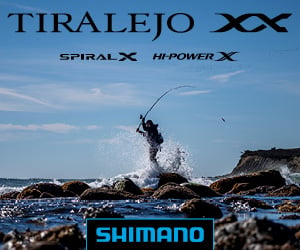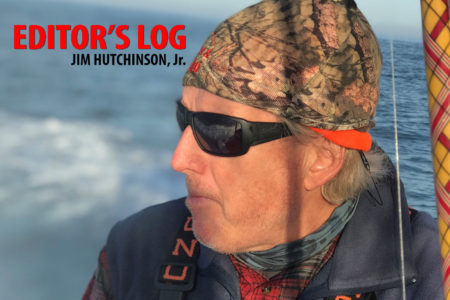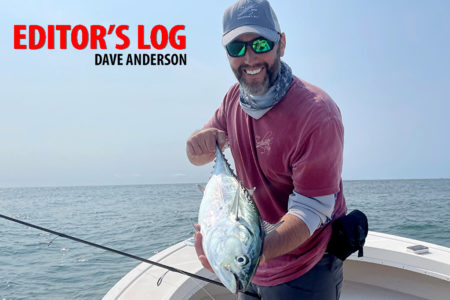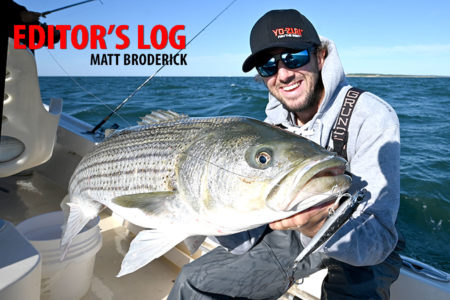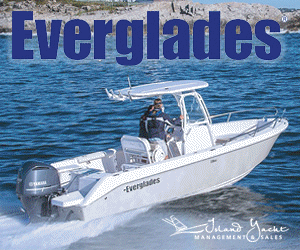On October 31, 1984, Federal waters were designated as off-limits for the possession and targeting of Atlantic striped bass by way of the Atlantic Striped Bass Conservation Act — P.L. 98-613. This effectively enacted a protection zone outside of 3 miles from shore in the Exclusive Economic Zone (EEZ) for striped bass to do their fishy thing, hopefully providing a safe haven for them to grow and continue to re-build the stock. Unfortunately, when this law was enacted, it was done so with a hard-and-fast line at 3 miles from shore, with little to no thought put into how that line actually plays out in the real world.
A simple look at a chart, which includes Southern New England and Long Island, say from Chatham to Montauk, returns isolated pockets of legal striped bass fishing waters at times surrounded by illegal waters. These spots include in such famous fishing places as Nantucket, Martha’s Vineyard and Block Island, to name a few. That last one, Block Island, has been the epicenter of some amazing fishing in recent years, and by many accounts, even greater amount of illegal fishing activities.
You see, when those rather arbitrary 3-mile lines were drawn, Block Island became an island of legal water surrounded by an ocean of illegal angling waters. Anglers are allowed to possess striped bass in the Block Island Transit Zone (BITZ), which is basically the Federal waters inside a line drawn from the Southeast corner of Block to Montauk Point on one side, and Point Judith on the other, but only while under power. This Band-Aid, if you will, legalized the transportation of one’s catch made legally inside the 3-mile line at Block, back to their home port of Long Island, Connecticut, Massachusetts or mainland Rhode Island. But it specifically allows ONLY for the transport of said legally-caught fish. If an angler is found to be actively targeting striped bass in these waters, or if they stop their boat while in possession of striped bass for any non-emergency reason, then they are in violation of Federal law. A lot, and I mean A LOT of unscrupulous anglers have figured out ingenious ways to buck the system (of which I will not be stating here out of fear of educating the uninformed), and even more simply ignore it altogether, feeling they are above the law or the cost of getting caught is far outweighed by the profit of fishing. They do this for any number of reasons from greed to glory, but to me it shows their true character.
So, this brings us to today’s news as there is, yet again, an attempt to open up legal angling for Atlantic striped bass in the BITZ. Similar actions have come and gone many times over the past 30 years; each time they receive full support by some and strict opposition by more.
This time around the proposal stands before NOAA Fisheries as follows:
NOAA Fisheries is considering removal of the current prohibition on recreational Atlantic striped bass fishing in the Block Island Transit Zone. The Transit Zone is defined as the area of federal waters within Block Island Sound, located between areas south of Montauk Point, New York, and Point Judith, Rhode Island. It is unique because it is a small area of federal waters substantially bounded by state waters.
Existing federal regulations prohibit recreational and commercial fishing for Atlantic striped bass in the Exclusive Economic Zone (EEZ); however, fishermen may possess and transport Atlantic striped bass caught in adjoining state fisheries while crossing the Block Island Transit Zone.
We are requesting public comment on the removal of the prohibition on recreational fishing for striped bass and on other options to improve management of Atlantic striped bass in the Transit Zone. The public comment period is now open.
Submit Comments
- Electronic Submission: Submit all electronic public comments at https://www.regulations.gov/docket?D=NOAA-NMFS-2018-0106.
- U.S. Mail: Submit written comments to Kelly Denit, Division Chief, Office of Sustainable Fisheries, 1315 East-West Highway, SSMC3, Silver Spring, MD 20910.
- Fax: 301-713-1193; Attn: Kelly Denit.
Next Steps
NOAA Fisheries will review all public comments and consult with the Atlantic States Marine Fisheries Commission to consider whether regulatory revisions are appropriate. All proposed regulatory revisions would be published in a proposed rule in the Federal Register for public comment. After a review of the public comments on the proposed rule and if appropriate, NOAA Fisheries will publish a final rule in the Federal Register to implement the regulatory revisions.
